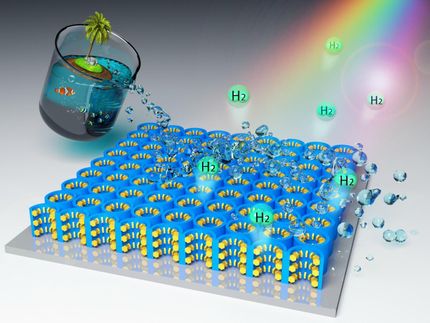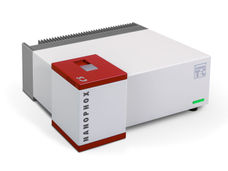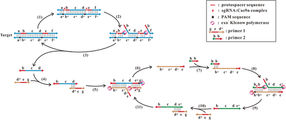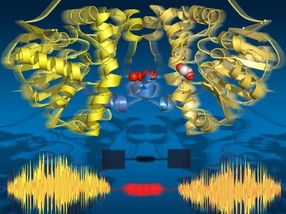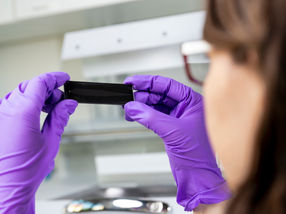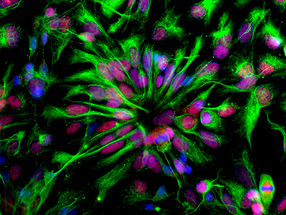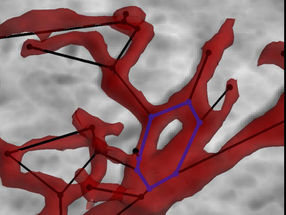Gold-palladium nanoparticles achieve greener, smarter production of hydrogen peroxide
Processing in smaller quantities and more useful concentrations is seen
Despite its importance hydrogen peroxide has eluded the best efforts of the chemists seeking a more direct, efficient and environmentally friendly means of producing it. "hydrogen peroxide has for decades been made by an indirect energy-intensive process," says Christopher J. Kiely, a professor of materials science and engineering at Lehigh University.
There are other disadvantages, Kiely adds. The economics of the current production method requires H2O2 to be produced in large quantities and in solutions with concentrations much higher, and less stable, than those used in most practical applications. This necessitates storage and transporting, which can be hazardous.
Chemists have searched nearly a century for a catalyst that can directly combine hydrogen and oxygen to produce H2O2 . They have had some luck with palladium, says Kiely, but their efforts have been foiled by a second problem – as fast as H2O2 is produced, it can decompose to water in the presence of the catalyst.
Now, a group of chemists and materials scientists from the UK and the U.S. is reporting that a carefully tailored alloy of palladium and gold nanoparticles catalyzes the direct production of H2O2 while "switching off" the decomposition of the compound. The breakthrough, which culminates more than five years of research on the topic, promises to enable the on-site production of H2O2 in smaller quantities and more desirable concentrations.
In an article in Science the group says the decomposition of H2O2 can be greatly reduced by depositing gold-palladium nanoparticles on a high-surface-area carbon support that has first been washed with nitric acid. The pretreatment decreases the average size of the particles from a range of 2 to 70 nanometers to a range of 2 to 25 nm. The washing also results in a more effective spatial distribution of the nanoparticles, enabling them to block the active sites on the carbon support that are responsible for the decomposition of H2O2 .
"We learned that neither the concentration of the nitric acid nor the length of time of the washing was important," says Kiely. "What was important was to wash the support in nitric acid before putting the gold-palladium nanoparticles on it. The resulting change in particle size and distribution enables us to retain a lot more of the hydrogen peroxide and to make the direct process more economically viable."
Original publication: Christopher J. Kiely, Graham J. Hutchings, Jennifer K. Edwards, Benjamin Solsona, Edwin Ntainjua N, Albert F. Carley and Andrew A. Herzinghe; "Switching Off Hydrogen Peroxide Hydrogenation in the Direct Synthesis Process"; Science 2009.
Other news from the department science
These products might interest you
Most read news
More news from our other portals
See the theme worlds for related content
Topic world Synthesis
Chemical synthesis is at the heart of modern chemistry and enables the targeted production of molecules with specific properties. By combining starting materials in defined reaction conditions, chemists can create a wide range of compounds, from simple molecules to complex active ingredients.

Topic world Synthesis
Chemical synthesis is at the heart of modern chemistry and enables the targeted production of molecules with specific properties. By combining starting materials in defined reaction conditions, chemists can create a wide range of compounds, from simple molecules to complex active ingredients.
